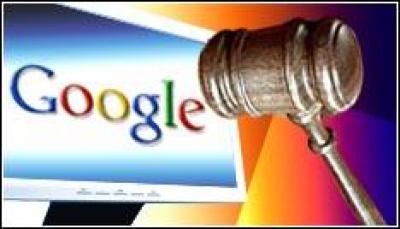

Viacom claimed nine new documents from its $1 billion (£654m) lawsuit versus Google’s YouTube prove the video-sharing site tried to make money from copyright infringement.
Viacom sued YouTube and Google for copyright infringement in March 2007, with the case winding its way through court amid a sea of confidential filings. Many of those filings became public March 18 in motions for summary judgment from the parties.
The media giant contended in its motion that Google acquired YouTube in 2006 because it was a “haven of infringement” and planned to profit from it. Google believes content placed on YouTube is protected by the Digital Millenium Copyright Act.
Viacom, looking to bolster its case in the court of public opinion, said that comments made by Google executives prove the search engine made a deliberate decision to make money from content it didn’t own and had no authority to offer to users.
Viacom included the following comments in this document, which was shared internally among Google executives before Google acquired YouTube: “YouTube’s business model is completely sustained by pirated content” and “YouTube’s content is all free, and much of it is highly sought after pirated clips.”
In this document, Viacom cites this comment from Jonathan Rosenberg, who leads Google’s product offerings, to Google CEO Eric Schmidt and co-founders Larry Page and Sergey Brin: “We may be able to coax or force access to viral premium content… Threaten a change in copyright policy… use threat to get standard deal sign-up.”
Viacom pulled out this comment to underscore points how Google seeks to advance its business interests despite the copyright issue. The comments themselves appear devious, but they are taken out of context and the judge will consider that when weighing Viacom’s arguments.
One of the hurdles Viacom must work around is the fact that its own employees used YouTube to upload video content even after the lawsuit was filed.
Viacom addresses that in the latest disclosure, but blames Google and YouTube. Stanley Pierre-Louis, Viacom vice president, and associate general counsel, noted:
“Google’s public relations machine has been trying to shift the blame to us, because some Viacom employees did in fact use YouTube for promotional purposes.
But this is a problem YouTube and Google created, not Viacom. We asked for the ability to identify to YouTube which clips were promotional, but YouTube and Google did nothing because they didn’t want to know. In the law this is called “willful blindness.”
A prominent law expert told eWEEK when the first batch of documents were unsealed last month that Viacom may have a hard time making a case against because it has evolved into a recognizable brand.
“In 2006, a judge might not have heard of YouTube, let alone used it,” said Eric Goldman, associate professor at Santa Clara University School of Law and director of the High Tech Law Institute. “By 2010, a lot of judges know YouTube before it even gets into their court room. I’m guessing most judges have positive thoughts about YouTube.”
American space agency prepares for testing of Boeing's Starliner, to ensure it has two space…
As UK and Europe develop closer military ties, European Commission says it will invest €1.3…
Zuckerberg seeks to revive Facebook's original spirit, as Meta launches Facebook Friends tab, so users…
Notable development for Meta, after appeal against 2021 WhatsApp privacy fine is backed by advisor…
First sign of shake-up under new CEO Lip-Bu Tan? Three Intel board members confirm they…
Trump's nominee for SEC Chairman, Paul Atkins, has pledged a “rational, coherent, and principled approach”…